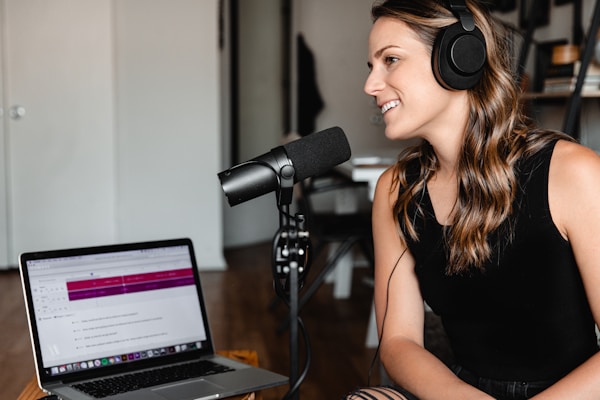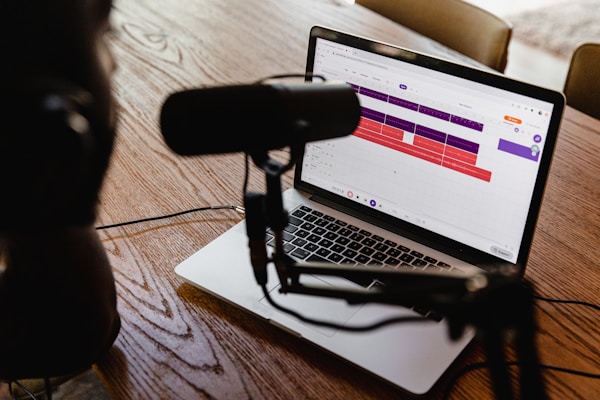Starting a podcast is an excellent way to establish yourself as an expert, build connections with other professionals, and engage with a global audience. To create a successful podcast, planning and investing in quality equipment are required. In this article, we will walk you through the primary steps to launch your show, including selecting the right topic, acquiring the right gear, preparing engaging episodes, and promoting your creation effectively. If you’re in need of advice or want to learn more, keep reading for a basic guide!
Acquiring Essential Gear

Investing in the right equipment is vital to ensuring that your podcast sounds professional and polished. The most critical piece of audio equipment is a high-quality and reliable microphone. A quality microphone will capture clear audio that is free from background noise, interference, and other issues that can detract from the listening experience. The right mic can also reduce the amount of post-production work required, saving you time and effort in the long run. A popular option is a wireless microphone, providing flexibility and excellent audio quality without dealing with cumbersome cables.
In addition to a quality microphone, headphones are another vital piece of gear for monitoring audio levels during recording and editing episodes. Opt for studio-grade headphones that deliver accurate audio reproduction without coloration or distortion. To further enhance your audio quality, consider acquiring pop filters and shock mounts to minimize ambient noise and eliminate vibrations.
Selecting the Right Topic
Choosing a compelling and relatable topic for your podcast is critical for its success. Start by identifying your passions and skills to ensure that you’ll feel motivated and confident discussing your subject matter. Furthermore, selecting a niche topic can help you stand out from the competition and attract a loyal audience. After identifying potential topics, conduct market research to determine if there is a demand for your podcast by checking out similar shows and analyzing their popularity.
It’s equally necessary to be aware of saturation in your chosen niche. Listeners are more likely to subscribe to new podcasts that offer a unique perspective or cover overlooked aspects of a subject. Don’t forget to think about the scalability of your topic. Ideally, your podcast should be able to grow and evolve with your growing audience, allowing you to continuously produce fresh content. Assess whether your chosen subject matter has enough depth and breadth for long-term engagement, and remember that it’s normal for your podcast to gradually shift its focus over time as you develop as a creator.
Preparing Engaging Episodes

Before you start recording, plan your content by creating episode outlines, scripts, or talking points. This will help you stay focused during recording sessions and ensure that your podcast is coherent and engaging. Strategize your format, whether it’s an interview-based show or a narrative storytelling podcast, and set up a structure that aligns with your topic and style.
While recording, remember to be mindful of pacing, tone, and engagement. Plan occasional breaks during long episodes to give listeners time to digest the content, and strive for a conversational tone that feels authentic and genuine. Mixing in anecdotes, humor, and personal stories can establish a stronger connection with your audience. After recording, take the time to edit your podcast meticulously. Removing pauses, stumbles, and background noise is critical for achieving a professional finish.
Promoting Your Podcast

Once you’ve created your podcast, promotion is crucial to attract listeners and build a strong following. Social media platforms, such as Facebook, Twitter, and Instagram, are excellent marketing channels. Share episode clips, images, and news related to your podcast to engage with both existing listeners and potential subscribers. Collaborating with influencers, guest speakers, or other podcasters can also spread awareness and boost your podcast’s credibility.
Encourage listener engagement by asking for feedback, reviews, and ratings on podcast directories like Apple Podcasts and Spotify. This will improve your discoverability and rankings, making your podcast more accessible to potential listeners. Maintaining a consistent release schedule will be integral for retaining and growing your audience. Offering a steady stream of content keeps your podcast fresh in listeners’ minds and builds trust in your commitment to providing valuable and entertaining material.
As you can see, starting a podcast requires careful planning, investment in quality equipment, engaging content creation, and consistent promotion. You’re not on your own, so take advantage of all the resources available to you and be thoughtful as you start to build your podcast and make a business plan. By following these steps, you’ll be well on your way to launching a successful podcast and sharing your passion with the world.











